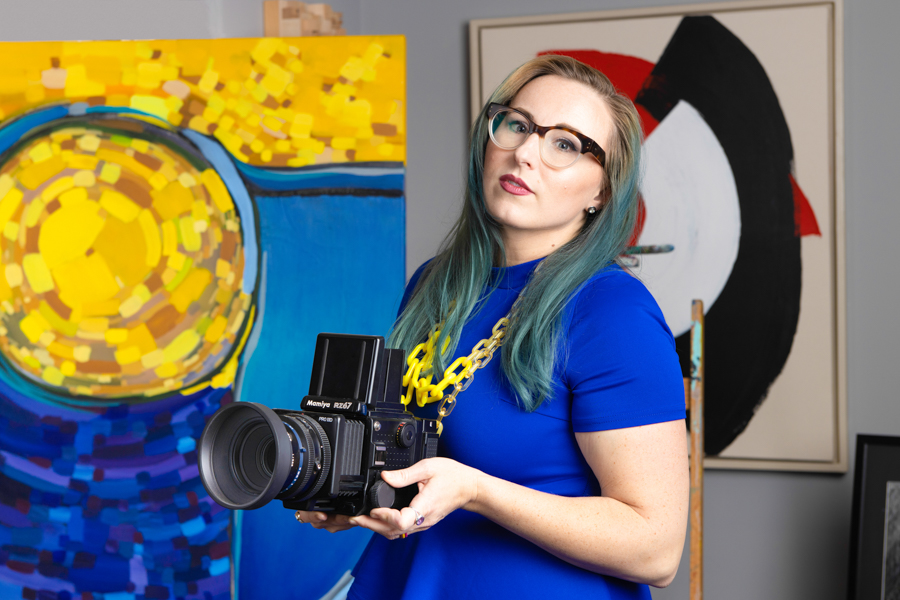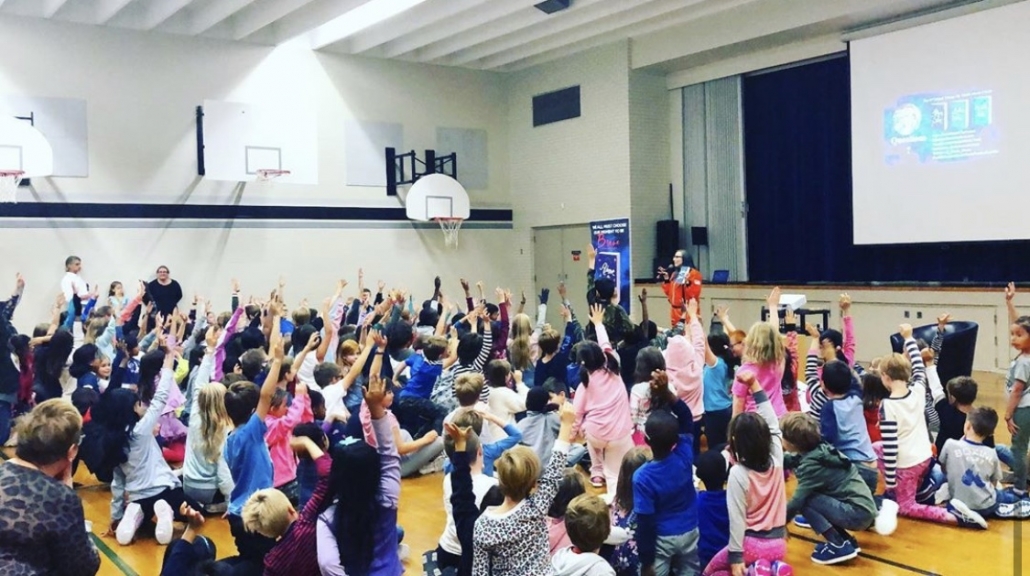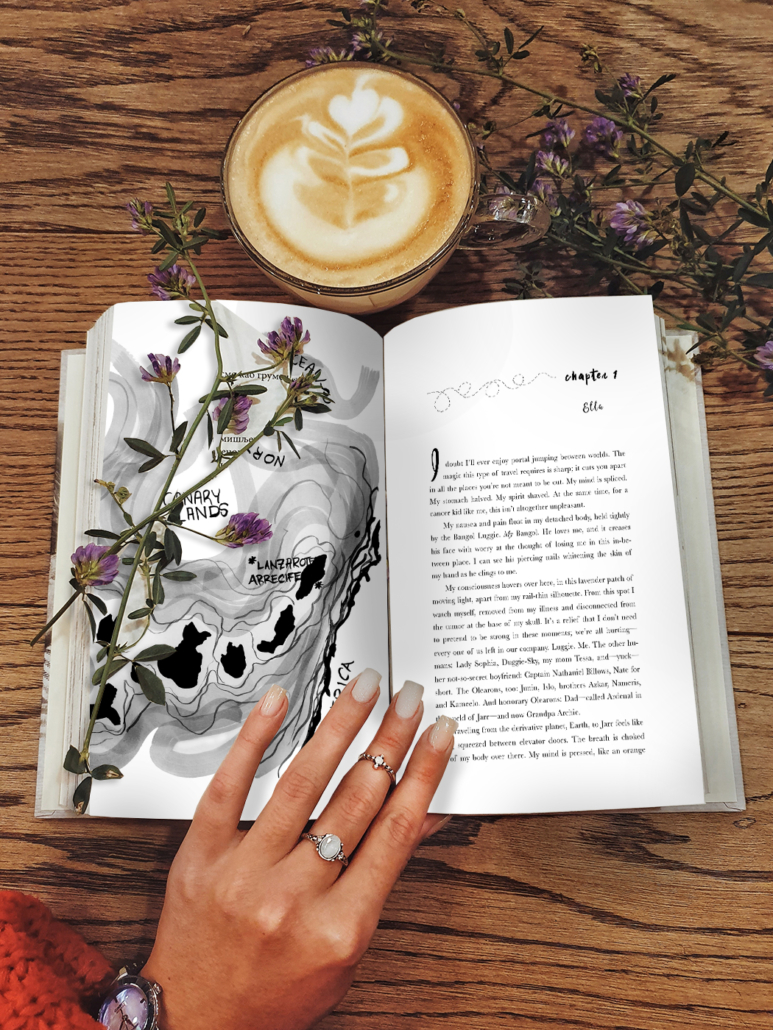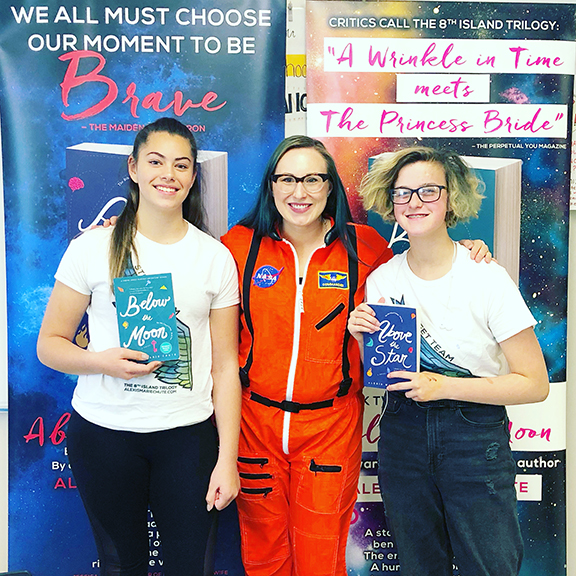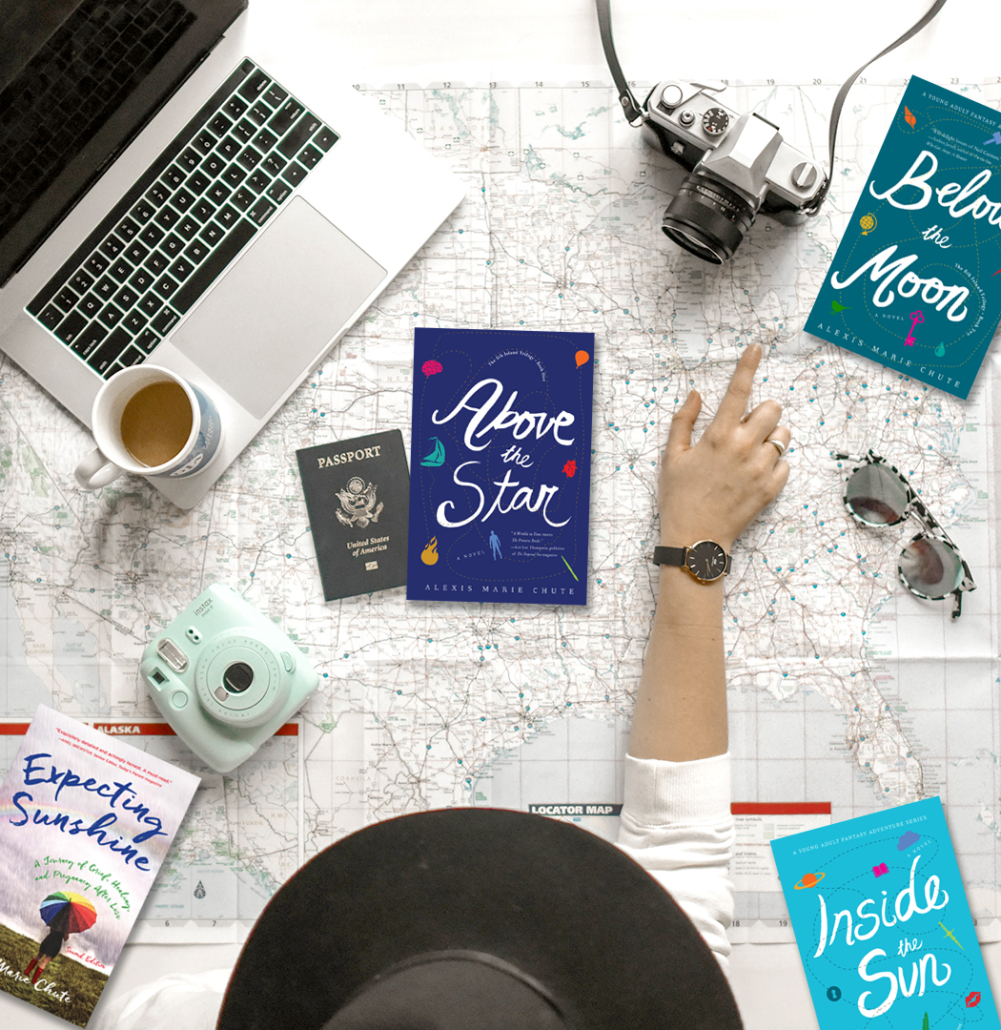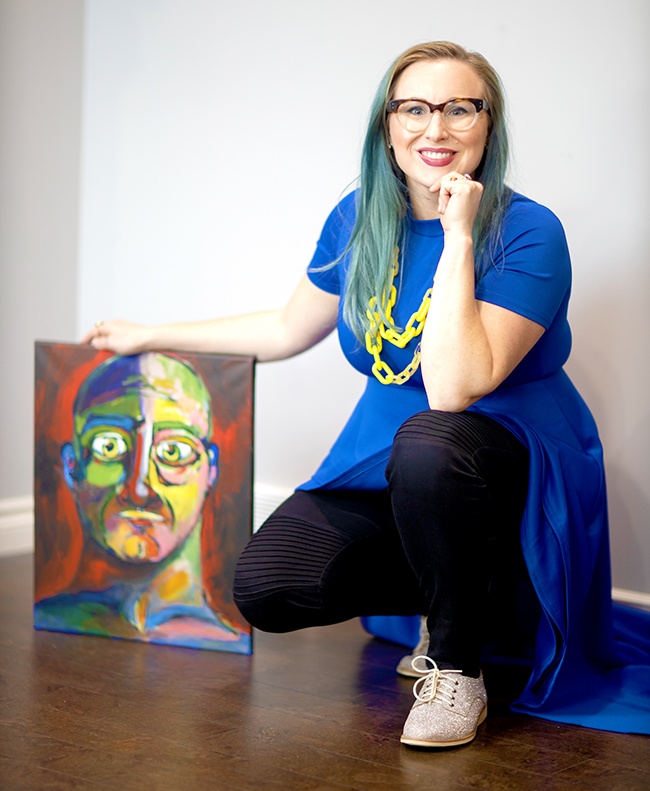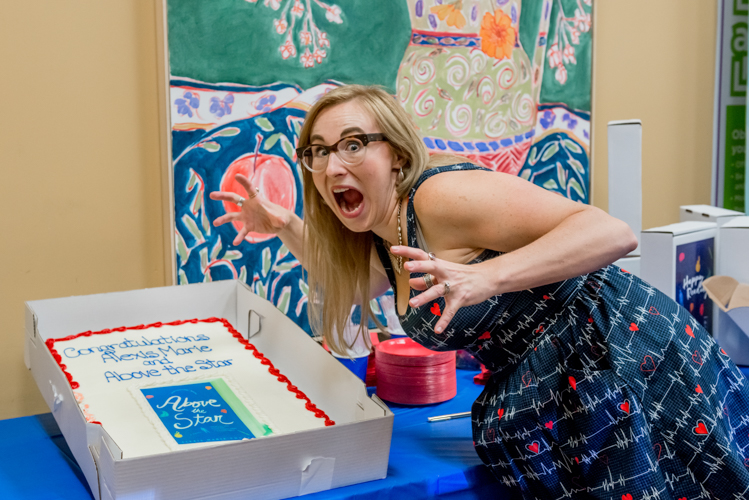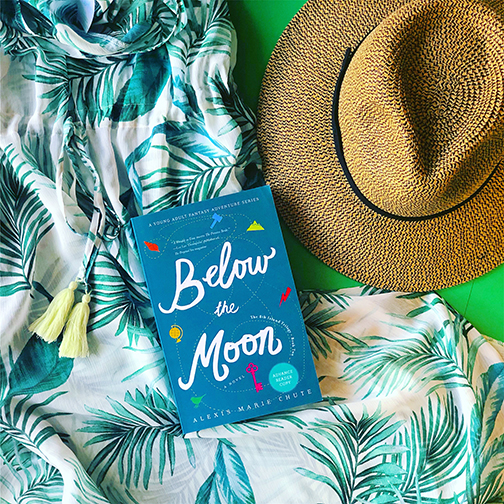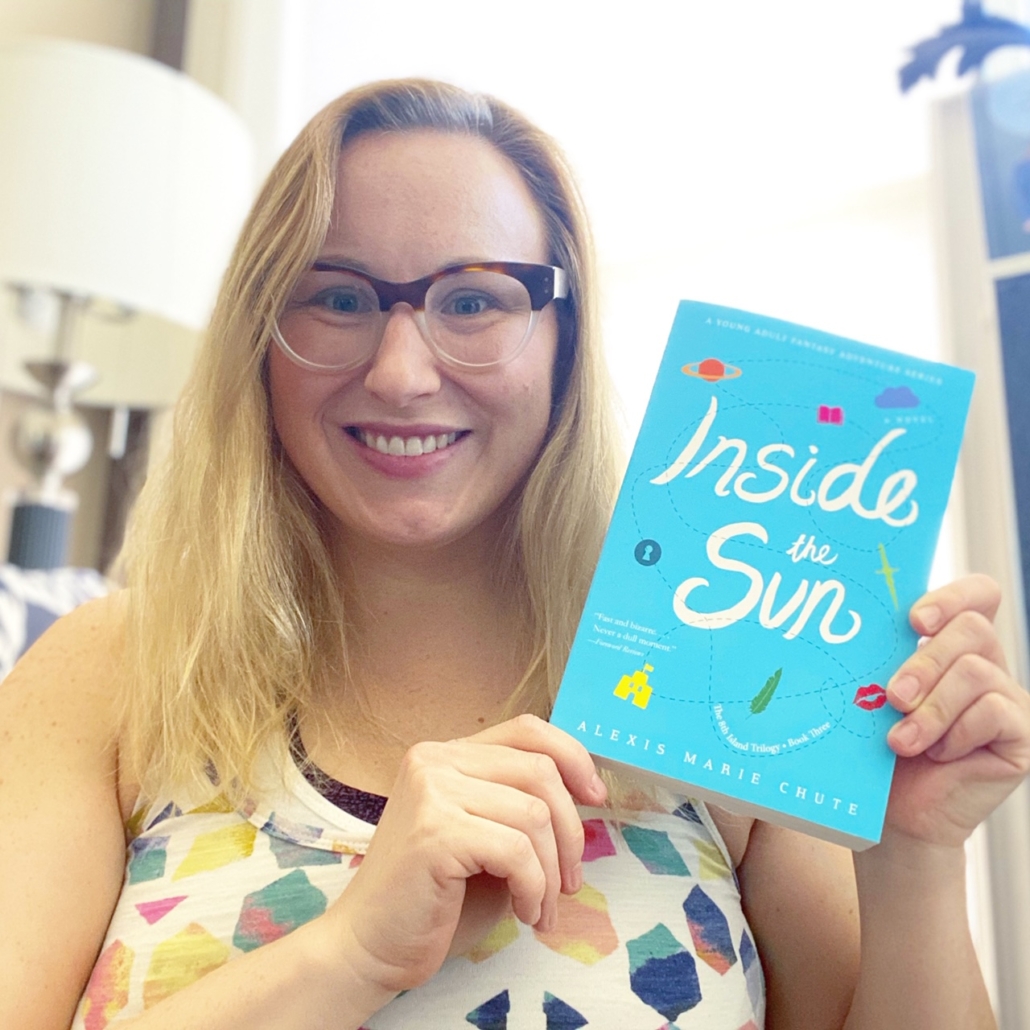Posts
The Gift of Literacy: Reflections from the life of World War Two Survivor Eva Olsson
Yesterday I visited the school where my husband is a vice principal. I wanted to see him, true, but the main reason I popped in was to hear Eva Olsson speak. She was visiting Edmonton to present to students in the Sturgeon School Division, traveling from her home city of Toronto, Canada.
Eva is a World War Two survivor and her stories were arresting. She used her experience with the “Nazi bullies” to implore the children in the audience to stop using the word hate and instead treat each other with compassion and respect.

She told the story of how her family was lined up with thousands of other Jews and separated. One group went to the gas chambers. The other group was put into work camps. Eva was just a teenager. Her mom was separated from her, sent to be murdered, and that was the last time they saw each other.
Eva’s father went to a work camp and died of starvation. The photo Eva showed was of a long line of bodies so thin that their stomachs caved in and the people were literally just skin and bone. It was like a collection of arching ribcages. The image made me shudder.

Eva and other girls her age were sent to another work camp. They slept outside on the grass – even when it was raining – and spent winter nights in a mud hole like pigs. They were all given wooden clogs, not in their size, and had no socks. Their feet were covered in blisters.
“May a new love for humanity be born out of the horrors we have known.” From the Scroll of Remembrance at Bergen-Belsen
Eva spoke of the power of hate to do such horrible things to other people. She also critiqued the bystanders of Europe who let this horrible tragedy of genocide take place. Her message was that bystanders – even those of today – that watch evil happen and do nothing are just as guilty.
I felt incredibly proud to hear such morality praised and advocated for – and also a little uncomfortable. Sometimes it feels our culture is very grey. We don’t want to upset others with our values so we water them down. Tolerance is at the forefront. Eva’s message actually felt wonderfully refreshing! There is right! There is wrong! We must be resolute in our convictions.
At one point she asked all the junior high kids: “Who does NOT like going to school?”
A large number of hands went up.
(Being a bookworm and an education-addict, I cringed when I saw the hands.)
What was Eva’s response?
“SHAME ON YOU!” she said sternly.
Eva did not go to school as a child or youth. She could not read or write. This embarrassed her greatly. She so badly wished to get an education! (She now holds a PhD so I believe her wish did come true.)
This is one of Eva’s messages that will linger on with me forever.
I don’t want my children to take their education for granted. It is a gift.
“I cannot live in the past, but I must life with it. Perhaps writing my story will weaken the hold the past has had on me.” – Dr. Eva Olsson LLD (Hon.), FRCPSC
When I was younger and in grade school, I was bullied relentlessly. It wounded my spirit deeply and I too would have put up my hand saying I would rather be anywhere else than in the classroom. At the time, I didn’t appreciate school. Who does as a youth in North America where we don’t have to fight for it?
I hope to cultivate a love of education in my kids. The ability to read and write opens many doors, cultivates the imagination, allows for understanding and compassion for others, and creates a means for self-expression.
As both an avid reader and an author, I cannot imagine my life without the gifts of education and literacy. These are things I fight for in my life – not in grand ways, but they are priorities that I protect none the less. It can be as simple as turning off the TV to read a book. Choosing to use proper English even when texting. Reading to my children before I tuck them into bed even when I myself am oh so very tired.
I celebrate the stories my daughter writes on every piece of paper in the house. Her spelling is a mystery most days, but she is learning. She is hungry for it. What a gift! What a precious ability that we have which I hope we never, ever lose sight of. What a blessing!
I am so very thankful that Eva Olsson reminded me of this lesson – of the critical importance of literacy.
Eva’s life is inspiring. To read more about her, please click here.
A Writer’s Reading List
There is not much in life where a person can succeed alone. Learning from others, being mentored and reading books are key activities for anyone wishing to strengthen their skills and creativity.
A Writer’s Reading List
What books are your favorites?
What literature has inspired you over the years?
What titles motivate you as a writer?
I have collected the beginnings of a reading list from what I personally have found helpful. It is made up of books I have read and ones I hope to dig into soon. A good number of the titles I discovered during my Masters of Fine Art in Creative Writing at Lesley University in Cambridge, MA.
Some of these books are helpful for the craft of writing. Others will inspire you creatively. A handful will motivate you to edit, while others are for the publication stage of a writer’s life.
Happy reading everyone!
Note: I have added a category to my blog called READING LIST. I will add to it over time. Please feel free to comment below with the names of books you have found helpful.

FICTION & NON-FICTION HANDBOOKS
The Craft of Writing
By William Sloane
Beyond the Writers’ Workshop
By Carol Bly
The Art of Time in Memoir
BY Sven Birkerts
Writing & Selling your Memoir
By Paula Balzer
Burning Down the House
By Charles Baxter
Art and Fear
By Orland & Bayles
Narrative Design
By Madison Bell
Illuminations
By Walter Benjamin
What If?
By Painter & Bernays
Letters to a Fiction Writer
By Frederick Busch
Writing Fiction
By Janet Burroway
From Where You Dream
By Robert & Olen Butler
Six Memos for the Next Millenium
By Italo Calvino
Creating Fiction
By Julie Checkoway
Pen on Fire
By Barbara DeMarco-Barrett
Story Matters
By Denman & Shoupp
Aspects of the Novel
By E.M. Forester
The Art of Fiction: Notes on Craft for Young Writers
By John Gardner
On Writing
By Stephen King
Writer’s Guide to Crafting Stories for Children
By Nancy Lamb
A Giacometti Portrait
By James Lord
Writing the Breakout Novel
By Donald Maas
The Lonely Voice
By Frank O’Connor
Reading Like a Writer
By Francine Prose
Writing in Pictures: How to Write and Illustrate Picture Books
By Uri Schulevitz
Deepening Fiction
By Stone & Nyren
If You Want to Write
By Brenda Ueland
Why I Write
By Eudora Welty
The King & The Corpse
By Heinrich Robert Zimmer
Backwards and Forwards
By David Ball
The Life of the Drama
By Eric Bentley
The Playwright as Thinker
By Eric Bentley
The Empty Space
By Peter Brook
The Power of Myth
By J. Campbell & B. Moyers
Playwriting
By Louis Catron
Aristotle’s Poetics
By Gerald Else
The Art of Fiction
By John Gardner
How to Write a Selling Screenplay
By Christopher Keane
Screenwriting from the Soul
By Richard Krevolin
Bird by Bird
By Anne Lamott
An Experiment in Criticism
By C.S. Lewis
Screenplay: Writing the Picture
By R. Russin & & Missouri Downs W
The Screenwriter’s Bible
By David Trottier
The Writer’s Journey
BY Christopher Vogler
Picture This: How Pictures Work
By Molly Bang
How to Write a Children’s Picture Book
By Bine-Stock
Nonfiction Book Proposals Anybody Can Write
By Elizabeth Lyon
Writing With Pictures: How to Write and Illustrate Children’s Books
By Uri Shulevitz
FICTION & NON-FICTION ESSAYS
- Baxter, Burning Down the House
- Baxter, The Art of Subtext
- Baxter, Bringing the Devil to His Knees
- Berg, Stephen (ed.), In Praise of What Persists
- Birkerts, Sven, The Art of Time in Memoir
- Calvino, Italo, Six Memos for the Next Millennium
- Gornick, Vivian, The Situation and the Story
- Gornick, Vivian, The End of the Novel of Love
- Hersey, (ed)., The Writer’s Craft
- Justice, Donald, “The Prose Sublime”: A Donald Justice Reader
- Kundera, Milan, The Art of the Novel
- O’Connor, Flannery, Mystery & Manners
- Plimpton, George, The Writer’s Chapbook
- Prose, Francine, Reading Like a Writer
- Rich, Adrienne, On Lies, Secrets and Silence
- Spitz, Ellen Handler, Inside Picture Books
- Welty, Eudora, One Writer’s Beginnings
- Welty, Eudora, The Eye of the Storm
- Cooper, Susan, Dreams and Wishes: Essays on Writing for Children
- Harrison, Barbara & Maguire, Gregory, Origins of Story: On Writing for Children
- Marcus, Leonard, Ways of Telling: Conversations on the Art of the Picture Book
- Zinsser, William, Worlds of Childhood: The Art and Craft of Writing for Children.
- Zinsser, William , On Writing Well
POETRY HANDBOOKS
The Practice of Poetry
By Behn & Twichell
Measures: Contemporary American Poetry in Traditional Forms
By Dacey & Jauss & Strong
Poetry Handbook
By Babette Deutsch
Poetic Meter and Poetic Form
By Paul Fussell
Rhyme’s Reason
By Hollander
The Poet’s Companion
By Dorianne Laux and Kim Addonizio
The Discovery of Poetry
By Mayes
Western Wind
By Nims
The Sound of Poetry
By Robert Pinsky
The Making of a Poem
By Mark Strand and Evan Boland (eds.)
The Princeton Encyclopedia of Poetry and Poetics
POETRY ESSAYS
- Bell, Old Snow Just Melting
- Birkerts, The Electric Life: Essays on Modern Poetry
- Bryan and Olsen, Eds., Planet on the Table: Poets on the Reading Life
- Dobyns, Best Words, Best Order
- Eliot, The Sacred Wood
- Glück, Proofs and Theories
- Hass, Twentieth Century Pleasures
- Heaney, Finders Keepers
- Heaney, The Government of the Tongue
- Hoagland, Real Sofistication: Essays on Poetry and Craft
- Jarrell, Poetry and The Age
- Justice, Platonic Scripts
- Pinsky, Poetry and the World
- Plumly, Argument and Song
- Pound, The Literary Essays of Erza Pound
- Sontag and Graham, After Confession: Poetry as Autobiography
- Stevens, The Necessary Angel
- Vendler, Part of Nature, Part of Us
- Vendler, The Breaking of Style
- Vendler, The Music of What Happens
- Voigt, The Flexible Lyric
- Williamson, Introspection and Contemporary Poetry
Here are some links to other reading lists for writers:
FlavorWire – 25 Books Every Writer Should Read
Open Culture – Earnest Hemingway Creates a Reading List for a Young Writer, 1934
Aerogramme Writer’s Studio – Stephen King’s Reading List for Writers
MFA Reflections: I’m a Booklover at Heart
There are so many things I love about grad school. The keener in me jumps for joy, for one. I absolutely cherish the immersion in my passion for creative writing and the challenge to improve. The interesting thing I’ve discovered is that this improvement has seeped into every area of my creative practice as writer, artist and human; how I read books, the way I appreciate art, the descriptions I chose when telling my friends about a really amazing experience.
The reading part is one indulgent pleasure of school. Oh boy, I sound like a nerd – but I love that I have an excuse now to brush off other things to curl up like a cat and read (although I’m more of a dog person). At my school residency in June, a friend introduced me to the Harvard Co-Op Bookstore. It was two levels of row upon row of books. Pure eye candy.
I never thought I’d compare the spines of books lining the walls to a great work of art – but they are sublimely beautiful to me.
I’ve always loved reading, from as young as I can remember. Summers were spent cradling the pages of novels throughout the warm days till I went cross-eyed every night. And what else is there to do in winter for someone who hates being cold? I have an almost photographic memory and because I imagined all the stories I read, I can still see many of them, like movie clips in my mind.
As a memoir and personal essay writer, I read a lot in these genres. There are many sad stories out in the world. Maybe this is because the challenging moments define us and reveal the people we are, that at the core of the human experience we want to become our best, most happy selves and thus we search for meaning. My first memoir, which is so close to the finish line in editing, is a challenging story. What I’ve starting to work on now is more cheeky and definitely more scandalous (wink, wink) – but in the end they are two stories that connect. One could not have been without the other.
Right now I’m taking a needed break from reading memoirs to delve into short stories. I love the short story form. There are so many craft techniques that jump out at me. Currently I’m working my way through The Best American Short Stories of 2013 and up next is the Best of the 21st Century… which is a mighty large volume.
Writing speaks to the reader, it calls to the child in us who read for pleasure before life got busy and complicated, it plants new ideas and waters the old ones. Writing sings.
What does good writing or your favorite book do for you? And please, please tell me about your favorite book stores and which worn spines decorate your walls like art.
Happy reading day!
How does a Writer Prepare for Her MFA?
The time clock marking my first day at Lesley University is counting down, quickly, – but technically I’m already a Masters of Fine Art student with the work load that must be checked off before day one of the first residency. I’ve got books to read and nearly a hundred pages of supplementary material to cover as well. I need to prep my writing for the hands on workshops. Not to mention reading and providing feedback on my peer’s writing…
I can picture a select few of my friends recoiling at all this reading, but hey, that’s why I applied for my MFA; I’m a bookworm and a passionate writer. What some may think of as literary torture, I relish with girlish delight.
Okay, okay. It is not all fun and games. I’ve got to put in some serious leg work and sweat it to prepare everything on time. Still, there are some things in life that give you goose bumps and you just know, deep in the core of your chest, that these are the moments that matter and will be magic in the end. This is the time that matters, right now.
Besides the assigned readings and travel logistics, how am I preparing for my MFA? Good question!
1. I am writing about it (Thanks for reading).
2. Rubbing virtual shoulders with current students online; making friends I’m already excited to come face-to-face with during our step out of the virtual world and onto campus.
3. I’m trying to get other stuff done. Clean the office. Tie up the loose ends of projects. There’s a lot to accomplish before I can be worry free and enjoy my schooling (quiet down you who just called me a “keener.” It’s true but you don’t have to rub it in!).
4. Prep my family. My daughter knows I am going to be away. She’s intrigued by the idea of spending more time with her dad and grandparents and is over the moon about flying to Boston for a vacation when my classes are done. My baby, my sweet little unsuspecting guy – all I can do for him is pour endless hugs and kisses into every second of our time together. Hubby will be busy filling my beautifully expert mom shoes while I am gone so I’m not too worried about him. He won’t have time to miss me. I have informed my family that I will be an emotional mess of mommy love while away and that I’ll need constant encouragement to stay the course. All have been sufficiently warned.

And last and likely most importantly:
5. I’m trying to NOT think about it too much. As a writer with a constant flow of verbal commentary that quietly narrates my whole life, I’m avoiding psyching myself out. Especially as I have a graceful pull towards the dramatic, I can already imagine my inner monologue going something like this:
“Alexis Marie pushes her thick black glasses back into the groove of her nose, her eyes nearly as wide as her frames as she stares up at the tall buildings before her. She tugs at her shirt. ‘Damn it!’ she curses, hoping no one will notice her perspiration soaked underarms. ‘Day one as a grad student,’ she sighs as she searches her course schedule for the room number of her first class.
After a myriad of false starts and wrong doors, she finally sits amongst a group of people who lounge confidently, like seasoned academics, tweed coats and all. The first workshop member stands to read her work, a piece of writing about her childhood. ‘Oh crap,’ Alexis Marie’s shoulders slump. ‘This woman is describing herself as a rambunctious blond three year old… I miss my own rambunctious blond three year old back home. How am I going to get through this? I’ve been a grad student for 30 seconds!’ With subtlety so as not to draw attention, Alexis Marie slips her cell phone out of her bag and begins to search for the earliest flight back to Edmonton.”
And there you have it. That is why I do not want think too much about the wonderful/scary/exciting/nail-biting experience I am about to dive into. I know myself well. It really is better if I stay busy, remain focused on the immediate here and now – then one day, when I allow my consciousness to catch up with me, I’ll be like, “Wow, my residency has begun! I can totally do this!”
Until then, wish me luck!







